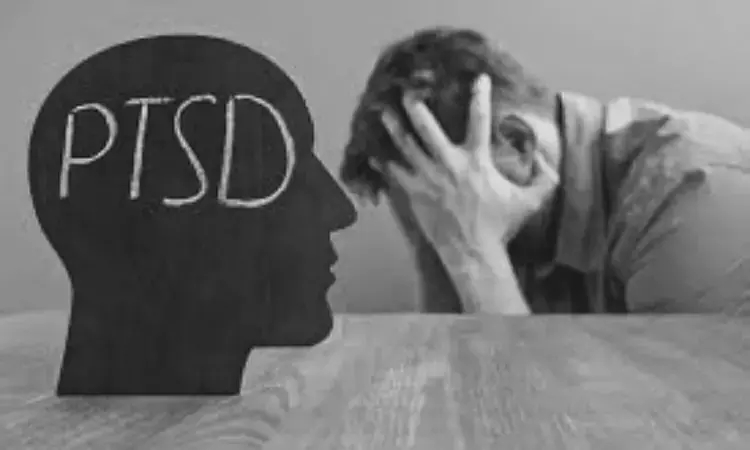- Home
- Medical news & Guidelines
- Anesthesiology
- Cardiology and CTVS
- Critical Care
- Dentistry
- Dermatology
- Diabetes and Endocrinology
- ENT
- Gastroenterology
- Medicine
- Nephrology
- Neurology
- Obstretics-Gynaecology
- Oncology
- Ophthalmology
- Orthopaedics
- Pediatrics-Neonatology
- Psychiatry
- Pulmonology
- Radiology
- Surgery
- Urology
- Laboratory Medicine
- Diet
- Nursing
- Paramedical
- Physiotherapy
- Health news
- Fact Check
- Bone Health Fact Check
- Brain Health Fact Check
- Cancer Related Fact Check
- Child Care Fact Check
- Dental and oral health fact check
- Diabetes and metabolic health fact check
- Diet and Nutrition Fact Check
- Eye and ENT Care Fact Check
- Fitness fact check
- Gut health fact check
- Heart health fact check
- Kidney health fact check
- Medical education fact check
- Men's health fact check
- Respiratory fact check
- Skin and hair care fact check
- Vaccine and Immunization fact check
- Women's health fact check
- AYUSH
- State News
- Andaman and Nicobar Islands
- Andhra Pradesh
- Arunachal Pradesh
- Assam
- Bihar
- Chandigarh
- Chattisgarh
- Dadra and Nagar Haveli
- Daman and Diu
- Delhi
- Goa
- Gujarat
- Haryana
- Himachal Pradesh
- Jammu & Kashmir
- Jharkhand
- Karnataka
- Kerala
- Ladakh
- Lakshadweep
- Madhya Pradesh
- Maharashtra
- Manipur
- Meghalaya
- Mizoram
- Nagaland
- Odisha
- Puducherry
- Punjab
- Rajasthan
- Sikkim
- Tamil Nadu
- Telangana
- Tripura
- Uttar Pradesh
- Uttrakhand
- West Bengal
- Medical Education
- Industry
Image-Based Memory May Heighten Symptoms of PTSD, reports study

When you're asked to remember something, does an image pop into your head? Many people's memories are intricately tied to their use of imagery.
In an upcoming Clinical Psychological Science study, Ryan Yeung, a postdoctoral fellow at the Baycrest Academy for Research and Education, examined this trait in people with post-traumatic stress disorder (PTSD).
Using imagery can help people keep their memories vivid for longer, previous studies have shown (Anderson et al., 2017; Rasmussen & Berntsen, 2014). The idea is so popular that people who compete in memorization contests often use imagery as a technique for memorizing large chunks of information quickly.
However, in a condition like PTSD, a strong sense of imagery could be harmful (Clark & Mackay, 2015; Holmes et al., 2015). Individuals with the disorder often experience vivid flashbacks, wherein the traumatized person feels transported back to a stressful scenario through sense memory, said Yeung.
“It was really shocking that when we looked into [the literature], maybe half of the studies find the effect, half of them don’t,” he said in an interview.
Yeung and his colleagues hypothesized that this discrepancy could be due to how earlier research had measured imagery itself. So, for their study, the team investigated two different traits of imagery: object imagery, which includes physical details such as shape, color, and form; and spatial imagery, which includes details such as location, direction, and movement.
To measure a person’s object imagery, a researcher might ask a person to conjure up an apple in their mind’s eye, and then have the participant describe its color, size, and shape. To measure spatial imagery, a researcher might ask a person to draw a map of a floor plan they’ve visited.
Yeung and colleagues tested how these different traits of imagery relate to PTSD symptoms. In two separate studies, participants were given a series of surveys to measure their object and spatial imagery traits. In total, the studies comprised 3,203 participants, some of whom had experienced a traumatic event. In the first study, participants ranged in age between 18 and 83. In the second study, participants were all undergraduates.
In both, participants were asked to respond to questions about their PTSD symptoms, depression, anxiety, and object and spatial imagery.
Some of the survey items designed to measure object imagery may have, for example, asked participants if it was easy for them to close their eyes and easily picture a scene they had experienced (Blajenkova et al., 2006), whereas a question measuring spatial imagery may have asked participants if they could easily rotate three-dimensional geometric figures in their mind.
During analysis of these datasets, the researchers controlled for depression symptoms and gender, which previous research had found could skew studies of this sort (Holmes et al., 2016; Ji et al., 2019). After controlling the data, they found that people with strong object imagery were more likely to have severe PTSD symptoms than people with strong spatial imagery.
“We were definitely surprised, because there isn’t that much out there, especially in terms of the spatial aspect,” Yeung said.
It’s not clear why spatial imagery might be less linked to negative symptoms of PTSD than object imagery. However, Yeung said that people who use spatial imagery frequently are able to recontextualize and process their traumas better than those with strong object memory. Thinking about their trauma in different ways instead of essentially reliving it could help a person work through a painful event, Yeung explained.
On the opposite end, people with strong object memory might more easily relive painful memories. Essentially, Yeung said, “this so-called benefit of having imagery just naturally could actually harm these people.”
In the future, Yeung believes these findings may inform new therapies. Clinicians could design interventions that illicit and strengthen a person’s spatial imagery, which could, in theory, help patients work through their trauma and become less burdened by it.
Dr Kamal Kant Kohli-MBBS, DTCD- a chest specialist with more than 30 years of practice and a flair for writing clinical articles, Dr Kamal Kant Kohli joined Medical Dialogues as a Chief Editor of Medical News. Besides writing articles, as an editor, he proofreads and verifies all the medical content published on Medical Dialogues including those coming from journals, studies,medical conferences,guidelines etc. Email: drkohli@medicaldialogues.in. Contact no. 011-43720751


